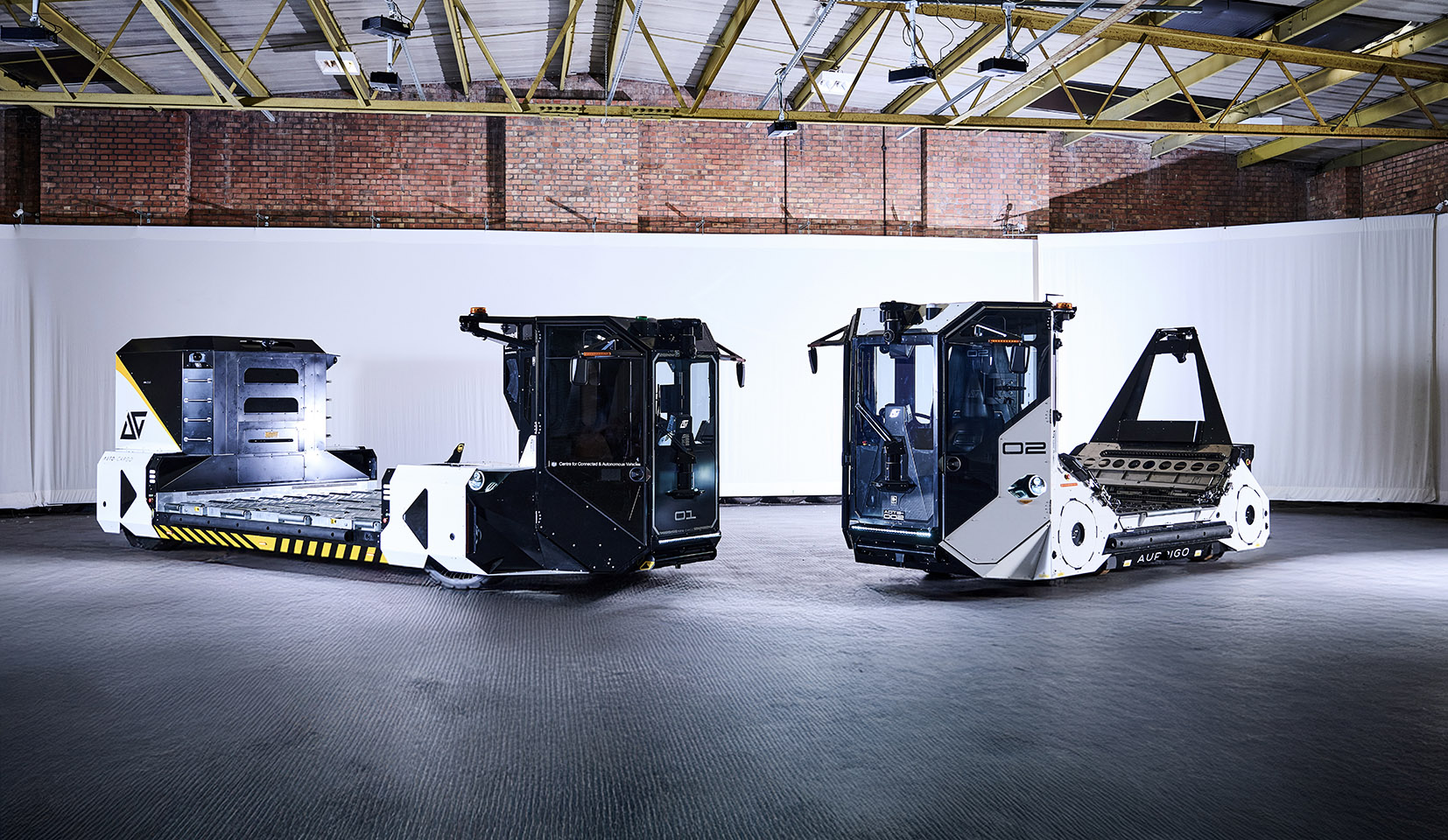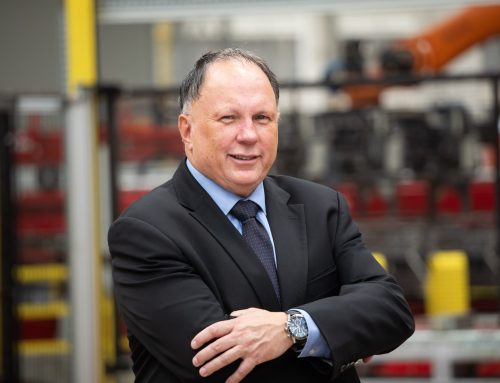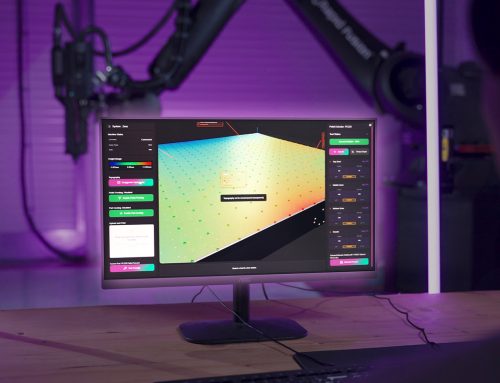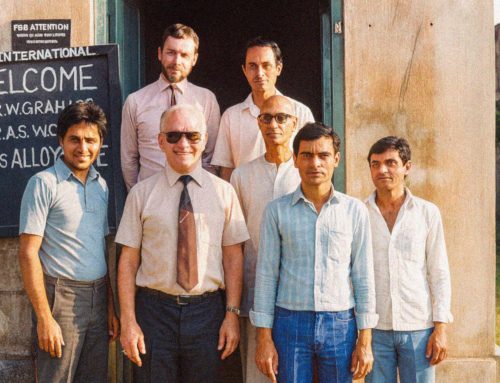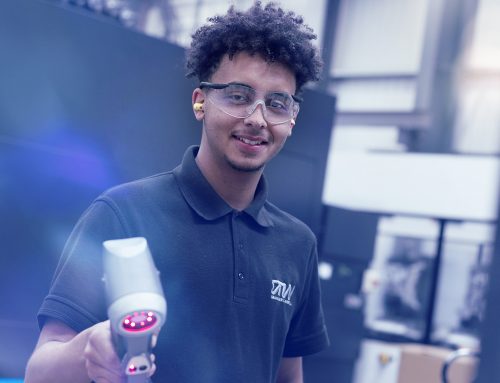One of the UK’s leading autonomous technology specialists has secured more than £1m of grants to accelerate sustainable airport and transport innovations.
Aurrigo International plc, which employs over 110 people at its advanced engineering centre in Coventry, has secured support from The Connected and Automated Mobility (CAM) Pathfinder – Enhancements programme and Innovate UK’s Launchpad programme to start work on four exciting new projects.
The Pathfinder programme is funded by the Centre for Connected and Autonomous Vehicles (CCAV), a joint unit between the Department for Business and Trade (DBT) and the Department for Transport (DfT), delivered in partnership with Innovate UK and Zenzic.
Launching this summer, the groundbreaking Aurrigo work spans simulation, feasibility studies and real-world vehicle trials at East Midlands Airport, in The Orkney Islands and closer to home in the West Midlands.
They also involve close collaboration with leading industry partners International Airlines Group (IAG), Highlands and Islands Transport Partnership (HITRAINS) and Urban Foresight.
David Keene, CEO of Aurrigo International plc, commented: “These awards reflect our commitment to building the next generation of intelligent, sustainable, and scalable transport systems that operate in both urban and airside operations.
“From immersive VR for airside training to real-world AV deployments and rural mobility innovation, we’re proud to be working with exceptional partners across the UK to bring transformative change to both aviation and ground transport.”
He continued: “This funding helps us to accelerate and, importantly, prove technologies in the real world, speeding up adoption and ensuring the UK continues to lead the world when it comes to autonomous vehicle deployment.”
Mark Cracknell, Programme Director at Zenzic, said: “We are delighted with the exciting projects selected through the CAM Pathfinder Feasibility Studies and Enhancements funding competitions.
“Aurrigo is a fantastic example of the calibre of company leading the way for the UK CAM sector and we’re very excited to share the news of their project successes.
“The deployment of Connected and Automated Mobility solutions has incredible potential to improve commercial and public transport, while potentially providing a huge boost to the UK economy.
He went on to add: “These four projects will provide an opportunity to demonstrate the commercial readiness of the technology while also providing valuable insight into future opportunities and use.”
The four projects in detail:
1. Ramp Ready: The Future of Airport Logistics
Competition: CCAV – CAM Pathfinders Enhancements
Duration: 9 months
Project Cost: £695,145
This large-scale project will extend the work of the ongoing ‘Autonomous Cargo’ programme by deploying two Auto-Cargo ® autonomous units and one Auto-Shuttle ® Mk2 e-Transit vehicle at East Midlands Airport. The objective is to refine a multi-vehicle fleet framework for airside logistics – enabling simultaneous cargo and aircrew transport.
Innovations include improved environmental testing, expanded simulation capabilities, and modular, low-volume manufacturing to reduce costs and accelerate scalability. The project supports the commercial readiness of both cargo and passenger autonomous vehicles while generating critical operational data for ongoing development.
2. Runway to Autonomy: Removing No User in Charge Obstacles for Autonomous Baggage Handling Vehicles
Competition: CCAV – CAM Pathfinder 1 – Feasibility Studies
Duration: 9 months
Project Cost: £99,425
This feasibility study aims to unlock full autonomy for Aurrigo International’s baggage handling vehicles by developing a framework to remove the onboard safety operator – paving the way for “No User in Charge” (NUIC) operations.
In collaboration with IAG, the project will define the safety, regulatory, cybersecurity and operational standards required to enable driverless deployment at airports. Key outputs will include recommendations for system failure protocols, certification pathways, cybersecurity standards, and human-machine interaction models, providing airport operators with the confidence to adopt fully autonomous baggage handling vehicles.
3. Kirkwall AutoLink Outline Business Case (OBC)
Competition: CCAV – CAM Pathfinder 1 – Feasibility Studies
Duration: 9 months
Partner Costs: £133,812.
Kirkwall AutoLink explores the feasibility of deploying a connected and autonomous, zero-emission shuttle service between Kirkwall Harbour and Kirkwall Airport in Orkney.
Led by Urban Foresight, with support from HITRANS and Aurrigo International, this rural mobility initiative will assess technical viability, regulatory requirements, commercial models, and local acceptance of operating a No User in Charge (NUIC) shuttle in a remote island context.
With over 90% of airport passengers currently relying on private cars, the study aims to support decarbonisation and integrated transport strategies through a scalable, community-led approach.
A comprehensive Outline Business Case (OBC) will inform the potential for a future demonstration deployment.
4. Visualising Airside Baggage Operation (VABO)
Competition: Launchpad: Immersive & Creative Industries, Coventry & Warwickshire Round 2
Duration: 12 months
Project Cost: £98,642
This project will enhance Aurrigo International’s Auto-Sim platform by integrating immersive Virtual Reality (VR) technology into baggage handling simulations. Developed using the Unity game engine, VABO will allow customers to train staff and plan operations within detailed 3D airport environments that include weather dynamics, realistic lighting, aircraft, and ground support equipment.
The VR layer will introduce real-time interaction, data visualisation, and instant performance feedback, building a powerful and scalable training tool for the adoption of electric and autonomous ground support systems globally.
For further information, please visit www.aurrigo.com or follow the company across its social media channels.

